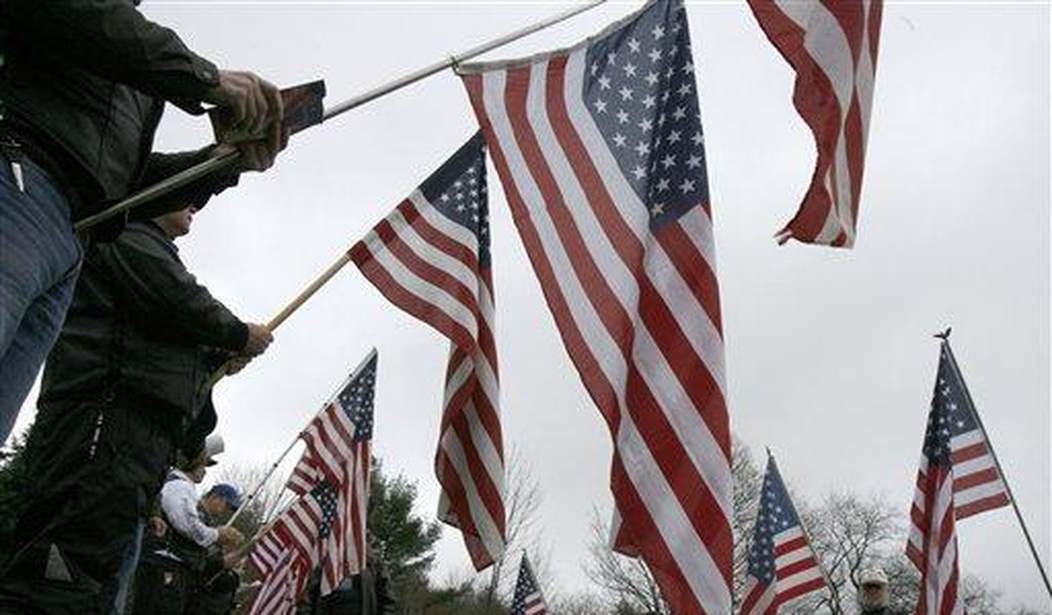The 9/11 attacks changed the Nation's dynamic, a newfound sense of patriotism not felt since World War 2 began. On September 20, 2001, George W. Bush stood before the Nation proclaiming, "Our war on terror begins with al-Qaeda, but it does not end there. It will not end until every terrorist group of global reach has been found, stopped, and defeated." So, the long war began, with an entire generation growing up knowing nothing but war. Millions deployed to combat zones worldwide for this new form of warfare termed the Global War on Terrorism (GWOT).
Podcasting flourished during the GWOT years. Joe Rogan started his podcast in 2009. With his ultimate success, millions followed, launching their podcasts. Generations of combat veterans from previous wars seemingly had no predominant outlet to share their experiences. The countless stories of Vietnam Veterans returning home from the unpopular war to no fanfare and a divided country made veterans internalize their struggles. Podcasting changed this dynamic. It gave a voice to an entire generation of combat veterans.
With multiple deployments in combat zones, Pete Turner turned to hosting a podcast to break down his Post-Traumatic Stress (PTS). Pete explained, "podcasting for me has provided much-needed context and corrects my misconceptions about my place in society as I sort out my PTS. By providing other voices, we all can better understand what these invisible wounds look like."
After a devasting injury Kevin Sullivan, an Air Force veteran, started hosting a podcast show to deal with the loss of his military career, "I got hurt during combat ops and lost my career to a PTS diagnosis. I felt like a failure on every level and considered what happened to me and my career unforgivable. Speaking with other veterans has taught me to revisit my thoughts and realize that they were not only untrue but flawed in every way. Speaking with veterans candidly puts a mirror on our own lives and experiences. I respect vets, and to hear how others have overcome their issues inspired me to overcome mine."
Recommended
Veteran podcasting did not just focus on war. It allowed veterans to revisit their service. Daniel Sharp, a veteran Infantry Marine with five deployments in the GWOT, hosts the Smoke Pit Podcast, said, "I wanted to recreate one of the most missed aspects of the military," said Sharp. "People [veterans] missed the banter, especially if they moved far away from a military community." Sharp went on to say, "I get to learn about different parts of the military I was clueless about. We all only experience our slice of the pie, and I wanted to share the idiosyncrasies of various jobs, branches, and even countries."
The GWOT did not solely affect the United States. It pulled Allies into the fight from across the world, including the United Kingdom. I spoke with Geraint Jones, a three-tour UK combat veteran, fighting not only in Afghanistan but Iraq. Jones is outspoken about his support for the veteran community, starting a podcast called the Veteran State of Mind to bring a voice to his fellow combat veterans. Jones doesn't hold back when he discusses the gritty reality of war and death. Jones's focus is not just the horror of war but also on bridging the military and civilian gap. Jones said, "I bring on civilians to break down this barrier that 'people don't understand us [veterans],' they do understand, everyone goes through it [pain]. I want everyone to learn about the other."
Jones also talked about the almost therapeutic feeling from podcasting, "It's important to program time every week, like therapy, where you have to dig into things you may otherwise gloss over." Jones' podcast moved beyond solely focusing on veterans to discussions with those outside the combat community.
North of the border, Canadian combat veterans also moved into the podcast space. Kelsi Sheren, an artillery combat veteran that experienced war firsthand, talks about why she started podcasting. Sheren said, "Everyone has a story and a way to help. Sometimes we need a platform to share that voice. Opening up from war was one of the hardest things to do, but the truth is as soon as I was open raw and fully transparent, I felt healing begin."
Echoing what many veteran podcasters have told me, Sheren talks of the therapeutic feeling from opening up. "I've learned that my guests have helped me heal, helped others heal, and their stories have opened people's eyes to what our veterans see in combat. We are building a community, one that accepts all, that is there for each other, [it is] therapy in a sense but more of an outlet for open and honest conversation, no matter the deep dark nature of the topic."
Podcasting doesn't end with veterans. The Department of Veterans Affairs, looking for ways to connect with the veteran community, created several podcasts from Voices of VA Research to Veterans' Health Matters to provide resources for veterans and caregivers. Podcasting offers a vast tool to provide critical lessons learned directly to their audience, a method not available to the previous veteran generations.
In his July 2021 remarks, President Biden stated, "Our military mission in Afghanistan will conclude on August 31." The war in Iraq ended a decade earlier, on December 15, 2011. Terrorism continues, as does the GWOT. The long war is not on any path to end, and you can count on more podcasts to spring up with a new generation of hosts recounting their experiences and with an opportunity, unlike any generation that came before.
Podcasting is by no means a replacement for therapy. Contrary, opening up with raw emotions can point veterans that need help to seek help. The Veterans Crisis Line can be found at www.veteranscrisisline.net/
Dr. Jason Piccolo worked in federal law enforcement for over 21 years and is a former U.S. Army Captain (Operation Iraqi Freedom). He hosts the podcast, The Protectors.

























Join the conversation as a VIP Member